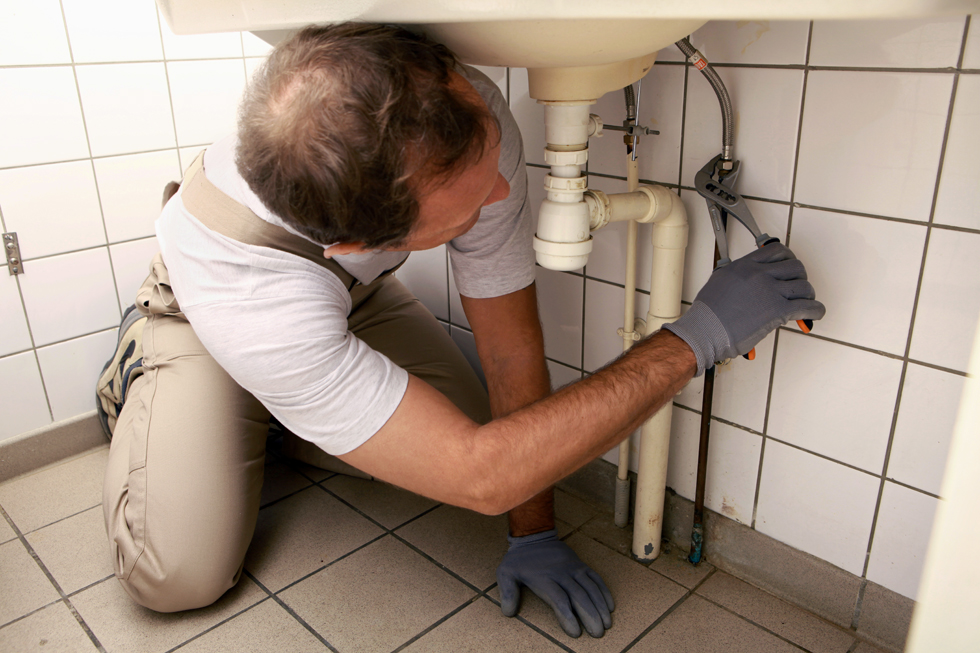
A home warranty or service contract may offer protection for your appliances & systems when they fail.
You just moved into an older home and had a thorough inspection. Appliances and mechanical systems were tested. But nothing lasts forever. The air conditioning unit might be on its last leg. The dryer could conk out, too.
When something breaks down, the last thing you want is more expense and headache, or the task of trying to find a competent workman in the middle of the night. To protect yourself, you might want to invest in a safety net known as a home warranty or home service contract. Before you do, consider the following:
- Which warranty provider should you select?
- What will the warranty cost, cover, and for how long?
- Is a service contract worth the expense, do you need the coverage for your home?
Unfortunately, there’s no boiler-plate warranty and single “yes” or “no” answer, but there is information you should have in hand to make an informed decision. First, understand that this kind of contract isn’t the same as homeowners’ insurance, or similar insurance policies. It’s a service contract that a buyer may purchase, or may sometimes be provided by the seller when you buy a home. Typically, a home warranty costs about $550. It covers the appliances and major systems in the home for a set period of time. This type of contract is different from the warranty a builder provides for a new house or which manufacturers offer for appliances in a new home.
The service contract may help cover many costs, but not all. Typically, a warranty doesn’t cover the cost of the service call, which can run anywhere from $65 to $75. It also may not cover certain items or parts that are excluded, or if damage or wear and tear were due to improper installation. Everything depends on the contract’s terms, which is why it’s so critical to read the fine print carefully rather than stash the document in a drawer.
Company policies also vary greatly, so it’s wise to contact a few. You can find a reputable home warranty/service provider by searching on the National Home Service Contract Association’s web site, the organization based in Lenexa, Kansas, which represents about 15 providers – and 95 percent of such companies nationwide.
The contents of the contract will explain what’s covered – which may include kitchen appliances, plumbing, HVAC system, garbage disposal, electrical panel, ductwork, and faucets, but not a swimming pool pump or icemaker. The contract also doesn’t automatically cover all systems and appliances equally, says Art Chartrand, executive director of NHSCA. Instead, many provide up to a certain limit per item or cover builder grade choices. A "super plan" might cover higher-end appliances – perhaps, that Sub-Zero or Thermador, but would cost more, Chartrand says.
How long the contract is in effect is another key piece of information. The usual time frame is a year, and that’s particularly important when appliances are older.
There’s still another point worth noting: who the service provider will be. Most companies have a roster of independent service providers they contract with rather than let a homeowner pick, but this, too, should be specified in the contract.
With all this information in hand, a buyer can make their own informed decision. John R. Lyons, a real estate broker with Baird & Warner in Chicago says he still considers home warranties as highly useful. "During the inspection period, the buyer may say, ‘We want this old air conditioner system replaced,’ even though it works fine now, to gain peace of mind. And the seller might decide to buy the warranty to insure coverage for that item and others for a year as a way to move the negotiations along," Lyons says. "It’s a lot less costly for the seller than having to replace all the major systems and appliances when they’re older," he says.
And if you buy one as the new homeowner or receive one from the seller, remember to file away the document safely, so you can find it in a flash in an emergency, or print, scan, and store it on your computer.
